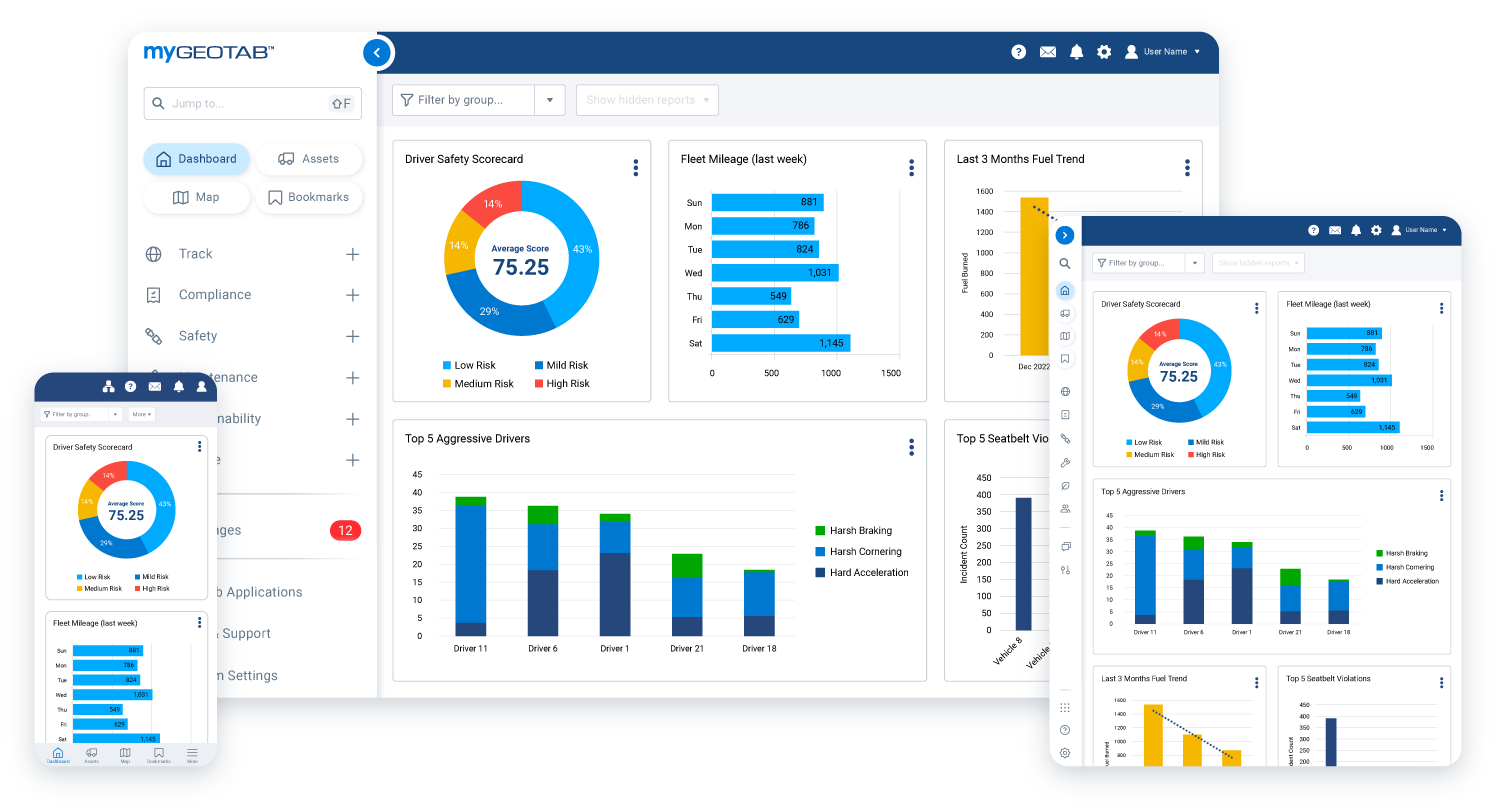Optimize Your Fleet's Efficiency Via Innovative Administration Software Program
In the dynamic landscape of fleet management, the role of cutting-edge management software application can not be overemphasized. Via a tactical assimilation of management software, services can open a world of possibilities that go far past standard fleet monitoring practices.
Advantages of Monitoring Software
Fleet management software application uses a series of benefits that streamline procedures and enhance effectiveness for services of all sizes. One crucial benefit is boosted efficiency via enhanced paths and timetables. By utilizing GPS tracking and real-time information, supervisors can successfully appoint tasks, display progress, and make quick changes as required. This causes minimized downtime, enhanced shipment times, and inevitably, increased customer complete satisfaction.
In addition, fleet monitoring software application assists businesses reduce expenses dramatically. By evaluating gas usage, automobile maintenance needs, and motorist habits, business can determine areas for renovation and implement approaches to reduce expenditures. This data-driven strategy brings about better decision-making, inevitably saving money in the future.

Real-Time Lorry Tracking
With the raising demand for boosted efficiency and cost-saving steps in fleet procedures, real-time vehicle tracking has actually become a critical tool for companies aiming to optimize their logistical procedures efficiently. Real-time automobile monitoring utilizes GPS technology to give real-time location data of each car in a fleet. This innovation allows fleet supervisors to check paths, track gas usage, and make certain timely distributions. By having real-time presence into their fleet, organizations can make informed choices to boost effectiveness, lower still time, and enhance customer contentment.
Furthermore, the data gathered with real-time tracking can be examined to determine patterns and trends, enabling constant optimization of fleet procedures. In general, including real-time vehicle monitoring into fleet administration techniques can result in considerable operational improvements and cost savings for services.
Path Optimization Features
Efficient course optimization plays a crucial role in streamlining fleet procedures and making best use of productivity. Path optimization includes incorporated into fleet management software make use of advanced algorithms to establish one of the most effective paths for cars to comply with. By taking into consideration aspects such as traffic conditions, roadway closures, and optimal distribution home windows, these devices aid fleet supervisors minimize fuel costs, reduce vehicle deterioration, and boost overall functional efficiency.
Via real-time information updates and anticipating analytics, path optimization functions enable fleets to adjust to altering circumstances when driving rapidly. This dexterity causes enhanced consumer fulfillment through on-time distributions and improved solution levels. In addition, by decreasing unneeded mileage and still time, fleet managers can decrease their carbon footprint and add to environmental sustainability efforts.
Price Effectiveness Solutions
Making the most of functional cost effectiveness in fleet monitoring goes beyond course optimization and encompasses a variety of strategic options to maximize funds and drive lasting growth. One crucial price efficiency option is the execution of predictive maintenance software program. By utilizing data analytics and maker understanding algorithms, fleet managers can proactively set up upkeep based on actual car problems, lowering downtime and avoiding expensive unforeseen failures.
Furthermore, embracing fuel administration systems can dramatically impact cost effectiveness. These systems keep an eye on gas intake in real-time, recognize inadequacies, and recommend ways to improve fuel economy. By optimizing fuel usage, fleets can decrease overall operational costs and reduce their environmental footprint.
Another vital cost-saving procedure is leveraging telematics innovation. Telematics options supply useful insights into chauffeur behavior, car performance, and route performance. By assessing this information, fleet supervisors can make educated decisions to streamline operations, boost performance, and eventually decrease expenses.
Improving Fleet Safety
Enhancing the safety criteria within fleet procedures is critical for guaranteeing driver health and minimizing the danger of accidents - fleet management software. Implementing innovative telematics systems can substantially add to boosting fleet security. These systems provide real-time surveillance of chauffeur behavior, such as speeding, extreme braking, and irregular driving, enabling fleet managers to step in promptly and give required training to drivers. Additionally, integrating motorist fatigue checking technology can aid avoid crashes caused by sluggish driving, enhancing general safety.
Routine upkeep and examinations are also essential aspects in making sure fleet safety and security. Applying a proactive fleet management tools maintenance schedule can help determine and address prospective concerns before they intensify into security dangers. Using predictive upkeep software application can aid in forecasting upkeep requires based upon lorry information, reducing the chance of unexpected break downs that could compromise safety.
Furthermore, purchasing vehicle driver training programs concentrated on protective driving methods and security procedures can instill a safety-conscious society within the fleet. By focusing on precaution and leveraging technology-driven services, fleet managers can properly boost security requirements and protect both drivers and properties.